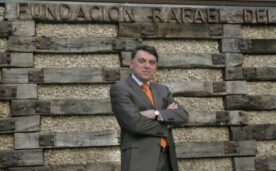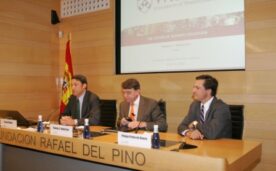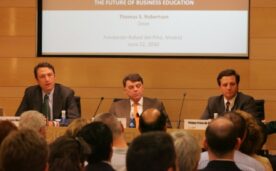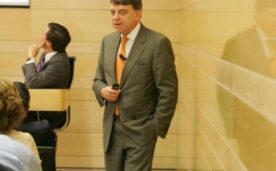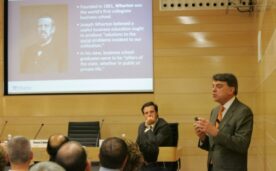The Rafael del Pino Foundation and the CYD Foundation, in collaboration with the Wharton School of the University of Pennsylvania, hosted the lecture by Thomas S. Robertson entitled "The future of business education", as part of the series of Master Lectures "Europe facing university changes", on 22 June 2010.
Thomas S. Robertson stated that "No asset manager can be successful over the long term by following just one strategy. It is important to have, first of all, a diversified portfolio, as we have at the University of Pennsylvania. Secondly, we have liquidity in our portfolio, which has protected us over the last two years. The rest of our assets have been invested in blue chips and partly in US Treasuries. This whole philosophy has worked very well for us over the last two years, accompanied by some alternative investments such as hedge funds and real estate assets, but with much more caution than some similar institutions. If we are talking exclusively about the management of foundational capital, the golden rule is diversification.
Regarding current trends in business education, Thomas S. Robertson said, "Business schools need to have a global vision and we need to meet the needs of multinationals. Another big change is the fact that multinationals are looking for global solutions, partly because of the recession and the crisis, which has led to cuts in internal company training and the number of people delivering corporate training. Companies are demanding that we study their needs, design specific training programmes and develop them. They are asking us to demonstrate that training adds value. The third driver of change is the use of technology to deliver blended learning. Companies want face-to-face training, but we are starting to see demand from companies for on-line training, with blended learning as the ideal solution, whatever form it takes. I think this will continue to evolve as technology evolves and will become more and more important in corporate training programmes.
